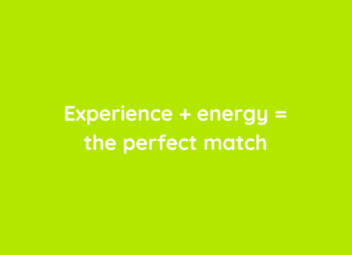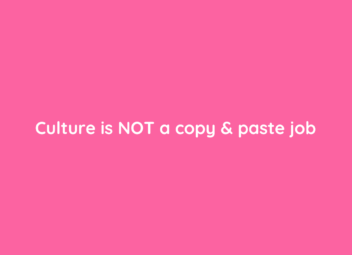
We have an avid group of readers here at Clearbox, however, we understand that it's easy to get stuck in a reading slump...that's why Lauren Graham is here to remind you why it's so important. Let's hear it, LG!
Ever since I could sound out a word, I couldn’t get enough of books. I was that kid who would hide under the covers with a torch, reading into the wee hours of the night. Often, my mother would have to confiscate my books just so I would go to sleep. While this habit dwindled a bit during my adolescence (hello, iPod touch), I picked it back up when I went to university to study English. I am a great advocate for reading, and let me tell you why.
Reading makes you a better writer
Everyone tells you this, but it’s true - reading will improve your writing more than any class or lecture could. If you are consistently reading well-written work, you will inevitably expand your vocabulary as well as your understanding of the written (and spoken) English language.
Reading more also helps you understand what style of writing works best for you. You will eventually pick up on grammatical habits that you like (for example, Amy loves an oxford comma) and be more equipped to write with a unique tone of voice.
Reading gives your brain a workout
Just like we should regularly exercise our bodies, we should also regularly exercise our brains. Studies have shown reading slows down cognitive decline in old age and slows the rate of decline in memory and other mental capacities.
Maybe consider swapping your nightly doom-scroll on TikTok with a chapter or two of a good book. While research on the effects of TikTok on the brain is lacking, there are plenty of concerns around the impact social media apps, especially those that churn out short-form video content, have on your mental health. I’m not bashing TikTok (this girl loves a TikTok scroll), but we should combat the ‘brain-mush’ feeling we often get from an hour long scroll with something that will give our eyes a break and our brains some well needed exercise. Josephine Tovey puts it like this:
"Like exercise, I sleep better and feel better and think better when I’m reading regularly away from a screen. My brain on TikTok feels like Doritos crumbs. My brain on a good book is a better place.”
Reading encourages conversation
When I was in university, I hated going to lectures, but I loved my tutorial classes. I loved sitting with a bunch of people who had read the same thing as me, discussing all the different things we liked and disliked about the book.
Most novels touch on some pretty important themes and encourage conversation about difficult and interesting topics. When we widen our knowledge of current and historical events or issues by reading, we are able to form well-rounded opinions and have a point of reference when these conversations arise.
Maybe this year try joining a book club or reading a book alongside a friend!
Reading increases your capacity to empathise
I have a very vivid memory of the first time I ever cried at a book. I was likely no older than 10, in my princess-quilted bed reading the second book in the Elsie Dinsmore series. In this instalment, Elsie’s father refuses to speak to her for months. This abandonment by her only living parent leads her to develop such a severe physical illness, she comes close to death. At 10 years old with a loving mum and dad two rooms down the hall, I was completely beside myself.
I remember my mum coming into my room and asking me why I was crying so much, and I explained through sobs what I was feeling for Elsie. This was a vital learning moment for me; I learned through this work of fiction that not everyone has had the same experience that I have.
Since then, I have read plenty of books that have evoked the same response in me. Reading about the experience of others, whether in fiction or non-fiction, widens our capacity to understand and empathise with the people around us. How we treat and respond to one another is done better when we understand the complexity of the human experience.
“Reading expands a person’s appreciation toward other life experiences the reader is not personally experiencing, especially when reading topics that are not related to that reader’s job or lifestyle,” says Wade Fish, director of National University’s Graduate School.
This is the number one reason we should read, in my opinion. You might expand your written ability, or focus better on projects at work, but if this healthy habit doesn’t cultivate a deeper understanding of how to treat others well, what’s the point? One of my favourite lines from Hanya Yanighara’s A Little Life sums it up well:
“And so I try to be kind to everything I see, and in everything I see, I see him.”


